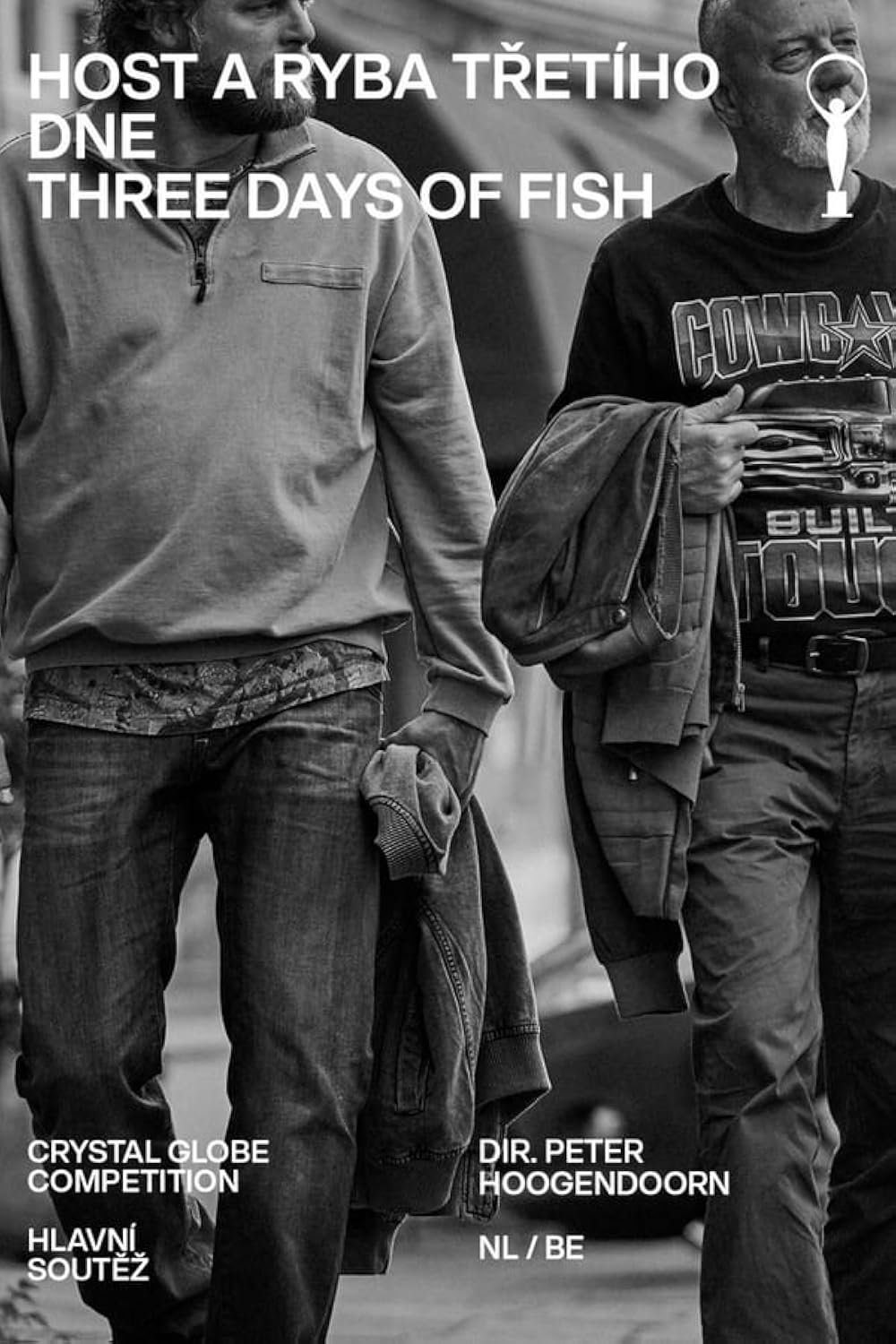A COMPLEX RELATIONSHIP BETWEEN FATHER AND SON
Oriana Brgić - Kolić
The film Three Days of Fish by Dutch director Peter Hoogendoorn is a darkly comedic family drama and, at the same time, a bittersweet and heartfelt human story that draws us into the subtle nuances of communication between a father and son.
Dick is an unemployed middle-aged man who makes a living selling secondhand chairs. His father, Gerrie, who lives in Portugal with his second wife, returns to Rotterdam for his annual medical checkups and to finalize moving to Portugal.
Through their time together, Gerrie carries out various practical tasks while Dick, accompanying him, tries to steal as much of his father’s free time, attention, and love as possible—a love he has craved his entire life. At times, Dick becomes almost ridiculous, regressing into the little boy his father left behind long ago. For instance, he deliberately misses a bus so he can return to his sister’s apartment and sleep in the same room as his father.
The film includes touching moments where Dick yearns for his father’s acceptance, hoping Gerrie will see him as a just and kind person, albeit a bit quirky, though by Gerrie’s standards, not a particularly successful member of society. On the other hand, Gerrie, who appears as a warm and caring husband, father, and grandfather in his relationships with his second family, is acutely aware of the time, attention, and love Dick never received from him. Yet, he struggles to establish closeness—even physical contact—with his son.
Concerned about Dick’s slight social maladjustment, Gerrie awkwardly tries to make up for years of separation and lost connection by gifting him his freshly extracted molar—a tangible piece of himself he can give to his son at this moment. However, their farewell is filled with discomfort, as Gerrie and Dick part ways without achieving the closeness of a hug, leaving an undeniable sense of unease hanging in the air.
Under Peter Hoogendoorn’s masterful direction, the two actors complement each other perfectly in their darkly humorous interplay. Their performances, as a guilt-ridden father and a son who never truly grew up, blend seamlessly. The realistic portrayal of scenes in black-and-white and the minimalism of their dialogue significantly enhance the psychological depiction of the challenges within family relationships.
The film’s music subtly underscores the complex interactions between father and son. As Dick and Gerrie wander through Rotterdam, the background features urban sounds, with a saxophone often heard. Gerrie’s new family is introduced through lively Latin rhythms in a community club from Cabo Verde.
Three Days of Fish is a human story that many can easily relate to, perhaps partly because of the personal biographical experiences of the author himself. The film’s sensitivity manages to touch something deeply hidden within us.

